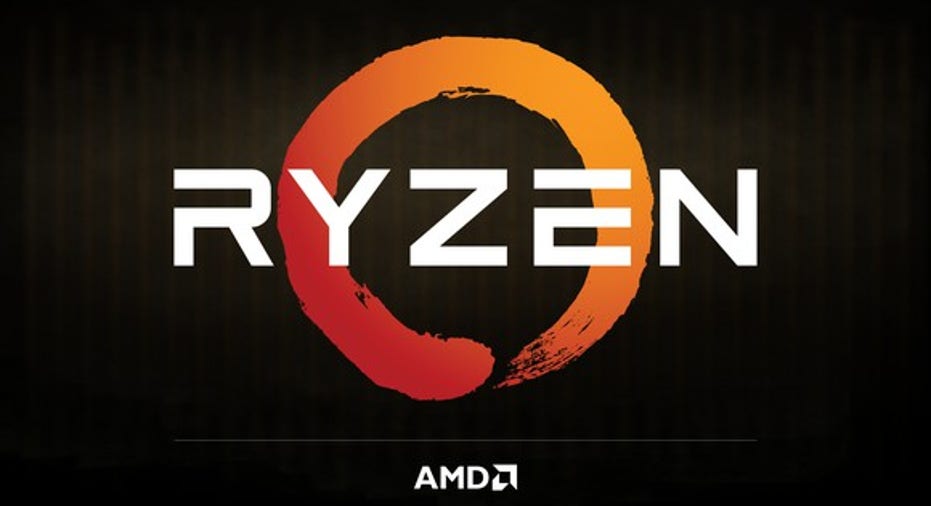4 Key Quotes From AMD CEO Lisa Su

After years of slumping market share and lackluster performance, Advanced Micro Devices (NASDAQ: AMD) will re-enter the high-end CPU and GPU markets this year with Ryzen and Vega. Ryzen, the company's new CPU, aims to go toe-to-toe with Intel(NASDAQ: INTC), while Vega, its new GPU, looks to chip away at NVIDIA's (NASDAQ: NVDA) dominance.
AMD reported its fourth-quarter results in January, concluding its fifth consecutive year of losses. The situation could improve dramatically this year if Ryzen and Vega drive market share gains, something the market is already pricing in. During AMD's quarterly conference call, CEO Lisa Su provided some additional details on the company's results and outlook. Here are four quotes from Su, taken from the transcript provided by Thomson Reuters, that investors need to see.
Image source: AMD.
Polaris is gaining some momentum
AMD launched its Polaris line of mainstream graphics cards in mid-2016. The RX 480 came first, priced at $239 to $199 depending on the amount of memory, followed by the lower-end RX 470 and RX 460. Revenue in AMD's computing and graphics segment jumped 28% year over year during the fourth quarter, driven primarily by Polaris.
The company's unit market share was near its bottom, around 20%, during the fourth quarter of 2015, so it's an easy comparison. Among gamers, Polaris has been nowhere near as successful as NVIDIA's Pascal graphics cards. Steam's hardware and software survey puts NVIDIA's GTX 1060 at more than four times the popularity of the RX 480. So while Polaris is driving growth and gaining some momentum, it's far from a runaway success.
Focusing on software
Software is one area where NVIDIA has built up an advantage over the past few years. On the gaming side, NVIDIA's GeForce experience gives gamers a slew of features like per-game optimization and built in live-streaming. GameWorks, NVIDIA's library of software for game developers, allows developers to implement advanced visual features optimized specifically for NVIDIA hardware.
On the compute side, the list of software ported to run on NVIDIA's GPUs is long, ranging from computational finance to molecular dynamics simulations. This advantage will be tough to overcome, but AMD is pushing on that front.
Betting on servers
Ryzen is set to become available in early March for PCs, but new server processors will be coming a bit later. Naples is AMD's new server CPU based on the Zen architecture, expected to launch during the second quarter. The strategy will be to go after the broader server CPU market, not just cloud computing.
Intel currently has a near-monopoly in the server CPU market, so AMD will be facing an uphill battle to say the least. But the server CPU market is essentially all upside for the company, since it has little presence today. If AMD can claw back a little market share from Intel, it would help drive the company back to profitability.
Keeping up with Intel
AMD no longer manufactures its own chips, but Su is confident that the company's roadmap will be competitive.
Intel has had plenty of trouble lately, abandoning its tick-tock strategy by inserting a third 14-nanometer chip into its roadmap. Intel's 10-nanometer chips are expected to come later this year, but the manufacturing gap between Intel and AMD will narrow substantially upon the launch of Ryzen. That's certainly good news for AMD.
10 stocks we like better than Advanced Micro DevicesWhen investing geniuses David and Tom Gardner have a stock tip, it can pay to listen. After all, the newsletter they have run for over a decade, Motley Fool Stock Advisor, has tripled the market.*
David and Tom just revealed what they believe are the 10 best stocks for investors to buy right now... and Advanced Micro Devices wasn't one of them! That's right -- they think these 10 stocks are even better buys.
Click here to learn about these picks!
*Stock Advisor returns as of February 6, 2017
Timothy Green has no position in any stocks mentioned. The Motley Fool owns shares of and recommends Nvidia. The Motley Fool recommends Intel. The Motley Fool has a disclosure policy.



















